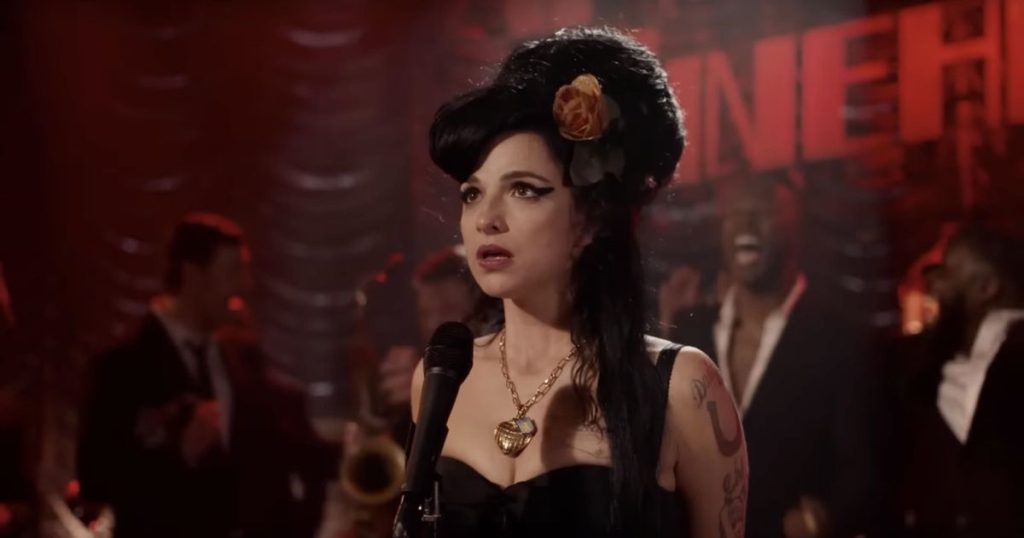Back To Black, the new Amy Winehouse biopic, has brought about mixed reactions from friends and critics of the late star. The film has been criticized by friends of Amy Winehouse for allegedly focusing on the darkest moments of her life, such as her drug addiction and overdose. They have accused the production of being “ghoulish” and unnecessary in reliving those tragic events. Amy’s father, Mitch Winehouse, has received backlash for permitting scenes of her overdose to be filmed at her former residence, now owned by him. Critics argue that the film should also showcase the positive and uplifting aspects of Amy’s life, rather than dwell on her struggles.
Despite the backlash from friends of Amy Winehouse, her loved ones have supported the project, with her estate releasing a statement expressing excitement about celebrating her music legacy through the film. Director Sam Taylor-Johnson has emphasized the responsibility of portraying Amy’s story with authenticity and sensitivity, aiming to create a celebration of her life rather than a negative depiction. The biopic features Marisa Abela as Amy and Jack O’Connell as her ex-husband Blake Fielder-Civil. O’Connell defended the film, stating that everyone involved aimed to honor Amy’s memory and do justice to her legacy.
The controversy surrounding Back To Black has sparked discussions about whether the film is in bad taste or a fitting tribute to Amy Winehouse’s life. Critics argue that the focus on Amy’s struggles with addiction may overshadow her talent and achievements, while supporters believe that the film is a genuine celebration of her unique artistry. The divided response highlights the challenges of portraying complex and troubled figures like Amy Winehouse on screen. The film’s premiere in London is an opportunity for audiences to engage with the portrayal of Amy’s life and music, as well as reflect on the impact of addiction and mental health struggles in the music industry.
The Amy Winehouse biopic addresses key events in the singer’s life, including her rise to fame, tumultuous relationship with Blake Fielder-Civil, and tragic death from alcohol poisoning in 2011. The film weaves together personal moments, music, and public perceptions of Amy Winehouse, offering viewers a glimpse into the complexities of her personality and career. Marisa Abela’s performance as Amy captures the essence of the iconic singer, while supporting cast members bring her inner circle and past relationships to life on screen.
The decision to include scenes of Amy Winehouse’s drug overdose and funeral in the biopic has raised concerns about voyeurism and exploitation of her personal struggles. Critics question whether these graphic depictions add depth to the narrative or sensationalize her tragic end. By delving into Amy’s darkest moments, the film invites audiences to confront the realities of addiction, mental health, and fame, which are often intertwined in the music industry. The controversy surrounding Back To Black underscores the complexity of creating biopics about public figures with troubled legacies.
Overall, the Amy Winehouse biopic Back To Black has sparked a conversation about the ethics of portraying sensitive subjects like addiction and mental health in film. The film’s release on April 12 will provide audiences with an opportunity to engage with Amy Winehouse’s legacy and reflect on the impact of her music and struggles. While the biopic has faced criticism from some of Amy’s friends, the support from her estate and creative team suggests that the film aims to pay tribute to her artistry and resilience. Whether the film will strike a balance between celebrating Amy Winehouse’s life and acknowledging her challenges remains to be seen, but it has undoubtedly reignited interest in her music and legacy.


